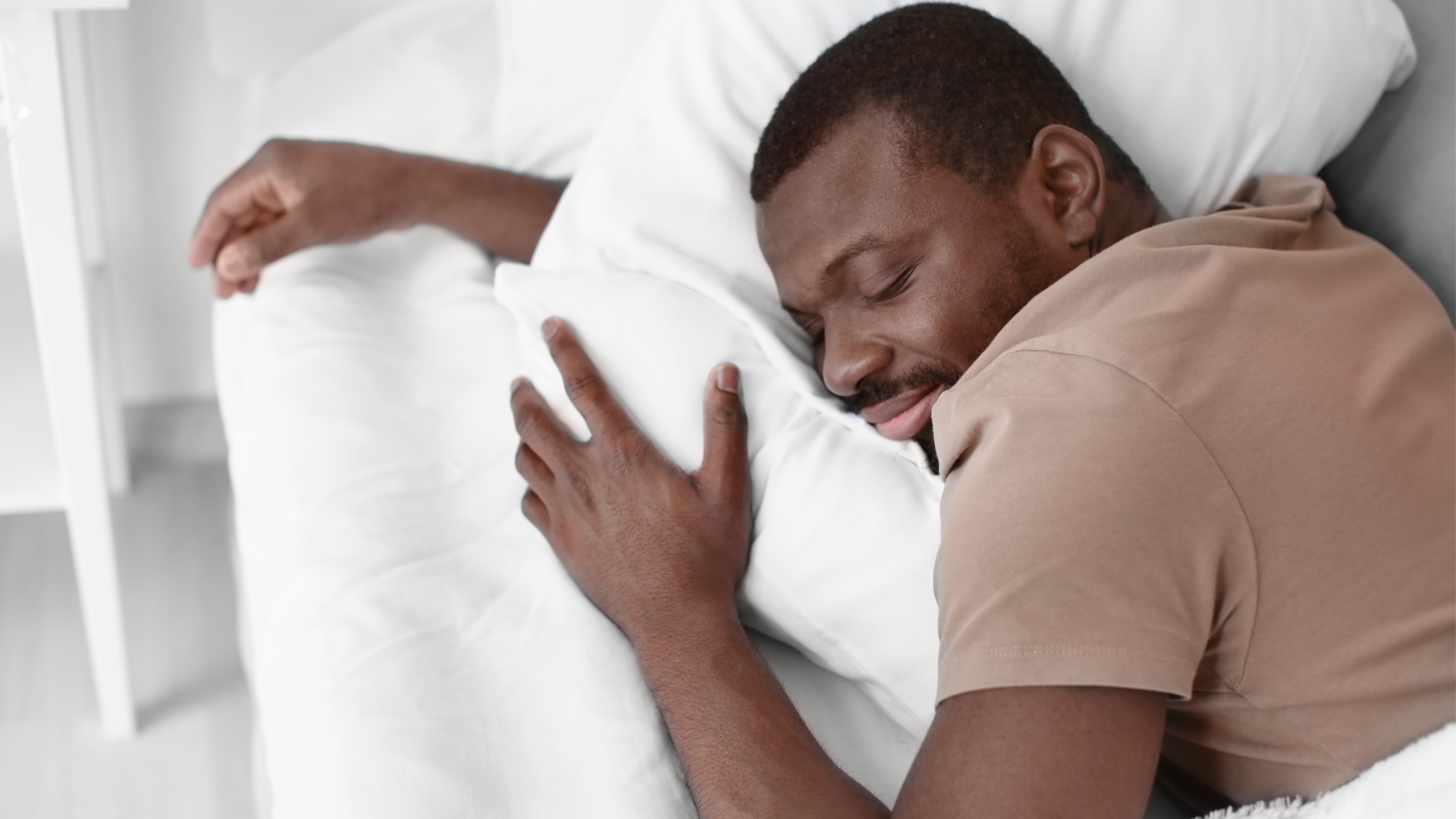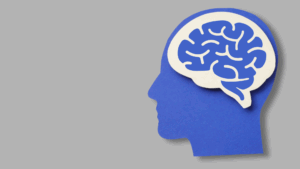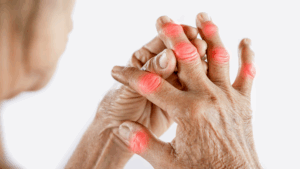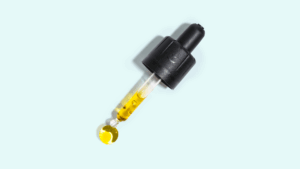Many clients come to Realm of Caring looking for help in improving their quality of sleep. The great news is that research is continuing to show us that cannabinoid therapy may help. Certain cannabinoids have shown through studies the ability to benefit our sleep-wake cycles, decrease nightmares, lessen the conditions that interfere with our sleep, and assist in actually falling asleep.
Before we go on, let’s get into some background information and understanding.
Sleep Challenges in America
Circadian rhythm is our biological rhythm in a 24-hour period, coming from the Latin circa meaning around and dies meaning day. The most commonly known is the sleep-wake cycle, which in chronobiology, is tied to day and night or lightness and darkness. An out-of-sync circadian cycle may be associated with poor health outcomes.
Insomnia is recognized by the American Psychiatric Association as the most common sleep disorder, involving problems getting to sleep or staying asleep with symptoms being episodic, persistent, and/or recurrent. This sleep disorder is known to cause distress or impairment. A survey published by the American Academy of Sleep Medicine found that 12% Americans reported a diagnosis of chronic insomnia.
The National Sleep Foundation shared the following statistics in their 2025 report:
- 6 in 10 adults do not get enough sleep
- Nearly 4 in 10 adults struggle to fall asleep at least 3 nights per week
- Almost half of adults experience difficulty staying asleep at least 3 nights per week
- 3 in 4 adults say good quality sleep positively impacts their ability to flourish – with women more often reporting stronger perceived benefits
What does our Endocannabinoid System have to do with Sleep?
Our Endocannabinoid System (ECS) is composed of endocannabinoids, as well as two distinct receptors known as CB1 and CB2, and enzymes responsible for the metabolism of endocannabinoids. It has been found that the expression pattern of CB1 and CB2 receptors are influenced by light-dark cycles and therefore appear to align with circadian rhythms. Furthermore, it has been shown in studies with rodents that the ECS may potentially modulate those rhythms to promote sleep.
Phytocannabinoids may provide an indirect benefit to sleep through mitigating conditions that often disrupt sleep. Major cannabinoids found in the cannabis plant, such as cannabidiol (CBD) and delta-9-tetrahydrocannabinol (THC) may reduce anxiety, inflammation, and/or pain – all factors that may disrupt sleep.
CBD and Sleep
Although CBD is not a naturally sedative molecule on its own, research has shown that high quantities may have “sedative-like qualities”, potentially due to the effect on cortisol levels.
CBD also has therapeutic properties that have the potential to mitigate symptoms that interfere with sleep. It also has the potential to improve sleep-wake cycles leading to an increase in the percentage of total sleep over time.
Among the several researched properties, CBD may benefit as an anxiolytic, anti-inflammatory, and analgesic. The anxiolytic properties of CBD may help to improve sleep by mitigating anxiety or stress-induced insomnia. Stress induces a sleep-related feature known as rapid eye movement (or REM) sleep rebound, this is an increase in REM sleep during the nightly sleep cycles. People experiencing REM sleep rebound may spend more time in REM then they would during a night of normal, healthy sleep.
Inflammation is a root cause of autoimmune disorders including arthritis, diabetes, irritable bowel syndrome (IBS), crohn’s disease, and others – all which have an effect on body clock function that can lead to sleep disorders. A study by Northwestern found in mice this link between inflammation and what controls the body clock. By limiting this inflammation, we may lessen the effects on our body clock functions and have more restful sleep.
A study in 2005 showed that people reporting insomnia symptoms are at least three times more likely to have a chronic painful physical condition. These events may then become cyclical in that pain may disrupt sleep and sleep deprivation can increase pain perception. In the majority of animal studies, CBD has been known to exert analgesic effects; co-administering with THC may provide more benefit to this therapeutic action.
Our circadian rhythm aligns our sleep and wakefulness with day and night to provide stability in restorative rest that enables increased daytime activity. Low doses of CBD may be associated with wakefulness to help our focus and cognition during the day. Studies show that therapeutic levels of CBD administration may increase total sleep time and decrease frequency of arousals at night – leading to an increase in total percentage of sleep over time.
THC and Sleep
In comparison to CBD, THC has shown in studies as having an affect on mental and physical sedation, even in low amounts. THC also has positive therapeutic benefits that may lead to better sleep.
Nightmares are associated with posttraumatic stress disorder (PTSD) often resulting in this being considered a “treatment-resistant” condition. Initial research has shown the benefit cannabinoids can have in managing nightmares linked with PTSD. A study with military veterans and prison inmates receiving Nabilone, a synthetic form of THC, found a reduction in nightmare presence and intensity. This increased participants’ hours of sleep per night.
Just as mentioned with CBD, THC is also beneficial for mitigating pain-induced insomnia or wakefulness. When it comes to pain studies and medical cannabis with significant THC content, benefits consistently show moderate to high symptom management of chronic pain.
A normal amount of apneic events in a healthy individual is about 4 per hour while asleep. Sleep apnea is the most prevalent form of sleep-disordered breathing in the United States and a number of animal and human studies have been conducted to examine cannabinoids as potential therapeutic alternatives to continued positive airway pressure (CPAP) machines, which are currently being utilized.
THC shares properties of the endocannabinoid Oleamide, which benefits apneic events. Results in one animal study showed that both the endocannabinoid Oleamide and the exogenous cannabinoid THC reduced apneic events, suggesting therapeutic promise for those who suffer with sleep apnea.
Limitations in Cannabinoid Research
A recent systematic review on cannabis and sleep architecture highlighted the mixed results that are available in literature. While surveys suggest that sleep is the most commonly reported targeted symptom to address with cannabis use and 85% of medicinal users reporting sleep improvement, studying the effect of cannabis on sleep is complicated. Chronic users may need higher quantities of THC and find it necessary for sleep, while first-time users may have an unsavory experience due to limited available guidance.
Next Steps and Getting Started
Here are some best practices if you are looking to incorporate cannabinoid therapy as a tool:
- Start low and go slow – find your therapeutic dose at the lowest amount.
- Quality of product matters, use this guide to vet product companies before you buy.
- Pairing cannabinoids with adaptogens (like functional mushrooms) may provide additional benefit, but this remains an emerging frontier. If you want to bring this up to your doctor but don’t know where to start, we can help.
- Document your journey through journaling.
- Join an available research study to further our understanding of cannabinoids and sleep.
Realm of Caring’s no cost hotline is available to you! Reach out for support today.





